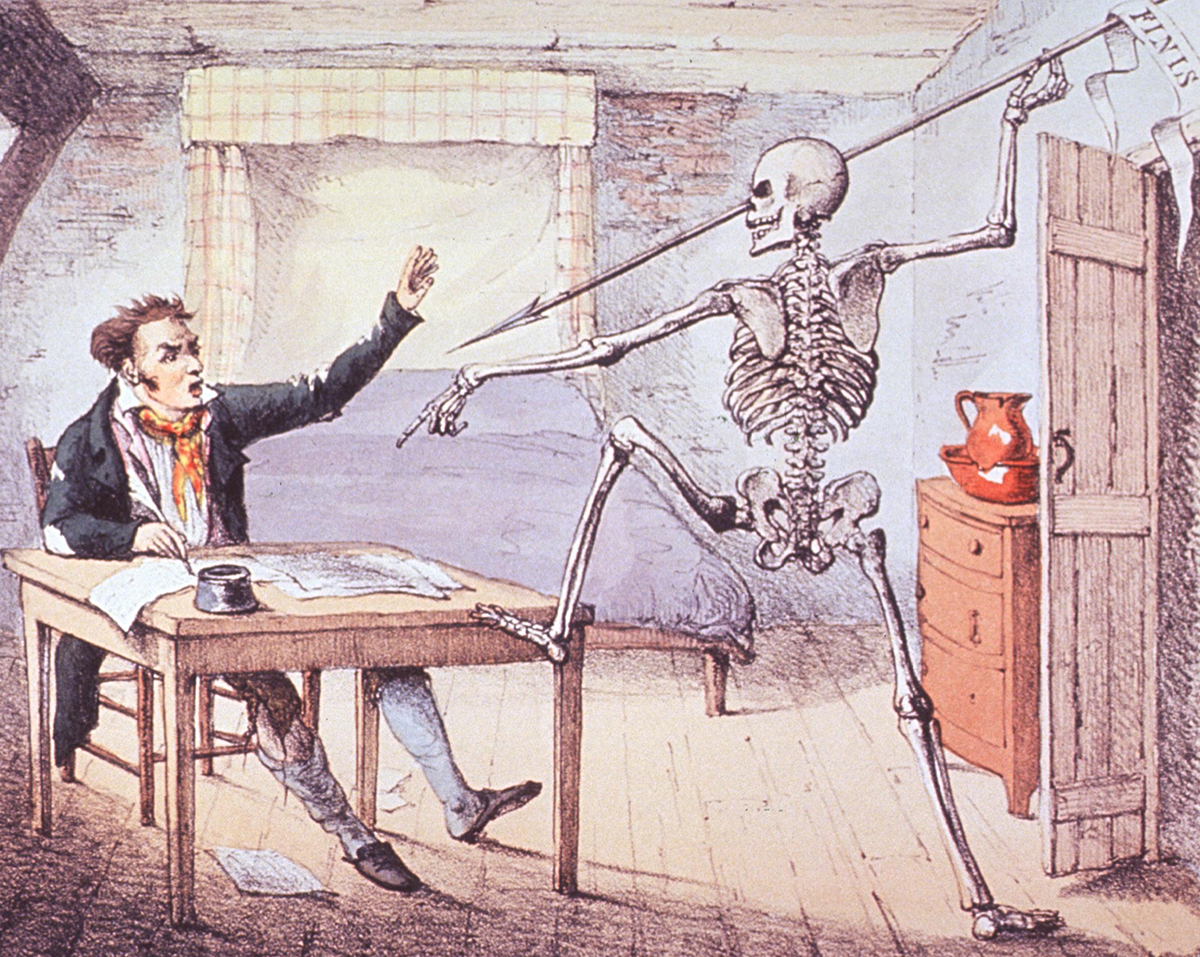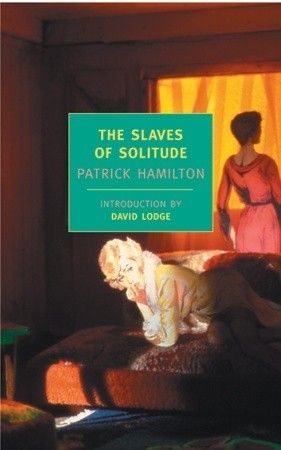Free Speech
The Death of the Author and the End of Empathy
The Nation’s editors are now taking aim at language itself, reducing the complexity of human communication to a primitive understanding of words.

In 2015, President Obama described the Nation as “more than a magazine—it’s a crucible of ideas.” If it was ever entitled to this descriptor, it isn’t anymore. Academic identity politics may be importing an obsession with phantom victimhood into the business world and the media, but The Nation’s editors are now taking aim at language itself, reducing the complexity of human communication to a primitive understanding of words.
In late July, the magazine’s poetry editors issued a groveling apology for a poem they had published earlier that month. “How-To,” by Anders Carlson-Wee, was an ironic critique of social hierarchies, couched as a manual for successful panhandling: “If you got hiv, say aids. If you a girl,/say you’re pregnant,” the poem opened. It went on to suggest begging gambits for other presumed outsider groups, including the handicapped: “If you’re crippled don’t/flaunt it. Let em think they’re good enough/Christians to notice.” The poem, in its entirety, reads as follows:
If you got hiv, say aids. If you a girl,
say you’re pregnant—nobody gonna lower
themselves to listen for the kick. People
passing fast. Splay your legs, cock a knee
funny. It’s the littlest shames they’re likely
to comprehend. Don’t say homeless, they know
you is. What they don’t know is what opens
a wallet, what stops em from counting
what they drop. If you’re young say younger.
Old say older. If you’re crippled don’t
flaunt it. Let em think they’re good enough
Christians to notice. Don’t say you pray,
say you sin. It’s about who they believe
they is. You hardly even there.
The word ‘crippled’ and Carlson-Wee’s use of black street dialect set off reader hysteria. Editors Stephanie Burt and Carmen Giménez Smith penitently announced that the poem contained “disparaging and ableist language that has given offense and caused harm to members of several communities.” (This maudlin invocation of ‘harm’ in response to speech is the fastest growing academic export into the non-academic world.) “We made a serious mistake [and] are sorry for the pain we have caused to the many communities affected by this poem,” Burt and Giménez Smith continued. They had originally read the poem, they said, as a “profane, over-the-top attack on the ways in which members of many groups are asked, or required, to perform the work of marginalization.” No more, however: “We can no longer read the poem that way.”

Leaving aside their mannered High Theory rhetoric, Burt and Giménez Smith’s original reading was accurate. How do they read “How-To” now and what textual or extra textual evidence persuaded them to change their minds? They do not say. (They did not respond to a request for clarification.) There is zero chance, however, that Carlson-Wee intended “How-To” as an attack on the handicapped or any other official victim group. Its point of view, target audience, and Carlson-Wee’s own background as an outlaw skater who used to hang out with the homeless all refute such a possibility. Yet these poetry editors, who of all people should understand irony, now reject the role of authorial intention in creating meaning in favor of a naive view of language, whereby a word itself, regardless of how it is being used, has the magical power to inflict harm.
Their new reading is both literarily and linguistically illiterate. The meaning of language arises in a particular context and with reference to authorial intention, implicit or explicit. In the victim universe, however, dare to use a forbidden word, no matter how bracketed by irony, and the mob now has the power to declare you a witch or heretic, with shunning to follow. Nuance and ambiguity are prohibited. Authors are reduced to choosing from the official list of approved words and avoiding taboo items. Only the victims and the gatekeepers of victim culture, whose ideological purity is beyond reproach, are allowed irony. ‘Crip studies’ is a recent sprout in the fertile fields of victim studies, referring not to the sociology of gangs, but rather to the allegedly artificial construction of disability. Its practitioners may use ‘cripple;’ uncertified white male poets may not.
Abandoned by his editors, Carlson-Wee issued his own fawning mea culpa on Twitter, announcing that he was “reevaluating what it means to make art . . . from a place of privilege.”
pic.twitter.com/GyRhf0LJ02
— Anders Carlson-Wee (@AndersWeePoet) July 24, 2018
With blood now in the water, the mob was not about to be placated. The anti-ableism group, Disabled & Deaf Uprising, tweeted in response that the poem was also “problematic in regards to HIV+ status” and lambasted Carlson-Wee’s use of “eye-opening” in his apology tweet. The list of forbidden phrases grows by the minute.
The elaborate rituals around the ‘n-word’ evince the same double standard regarding authorial intention. According to existing conventions, whites may never use the full word without elision, even if they are doing so not to refer to anyone but as reported speech. Its mere presence in the mouth of a white person launches a nuclear bomb against blacks; the transgressor will be punished accordingly, as the founder of Papa John’s pizza discovered after using the full word as an embedded quote from chicken impresario Colonel Sanders. Blacks, however, can use the word in toto to refer to actual people, because their intentions matter and it is assumed that blacks are incapable of racist intent. Black Twitter users used the n-word 6.2 million times in one month, according to a 2015 study; it is ubiquitous in urban vernacular and in rap music, with black entertainers like Jay Z, Beyoncé, and Kanye West tossing it off with impunity.
It was a breakthrough in philosophy, starting with Plato, to recognize the conventional nature of language—that a linguistic sign is not the same thing as the signified. That understanding opened the way for the sophisticated study of language and interpretation, known as hermeneutics. A return to a belief in word magic, however, whereby words directly impinge on their referents, radically limits human expression and imagination.

As for the ignorant conceit of ‘cultural appropriation,’ it is equally limiting and equally primitive. Roxane Gay, a frequent contributor to the New York Times’s editorial pages, tweeted: “Don’t use AAVE [African-American Vernacular English]. Don’t even try it. … Know your lane.” The anti-cultural appropriation crusade views racial and sexual identity as something that can be stolen, if a writer from an allegedly privileged group has not been granted ‘permission’ (from whom is never clear) to imagine the life of someone from an official victim group. Publishers are at present rejecting manuscripts of novels and stories because their authors entered into the forbidden territory of victim identity.
Anyone who believes, however, that human beings are incapable of grasping the experience of an allegedly oppressed Other has never read literature, with its stunning insights into, say, female psychology (see, inter alia, The Slaves of Solitude, by Patrick Hamilton) and the lash of stigma (see Esther Waters, by George Moore). Harriet Beecher Stowe, Twain, Thackeray, and countless other authors who have expanded the radius of human sympathy could not be published today. Robert Louis Stevenson, Thomas Hardy, and William Faulkner, among others, used dialects in their novels; who is to say whose languages are off limits? Here, again, the rules are asymmetrical. Members of official victim groups are encouraged to expound on and portray the lived experience of ‘white privilege’ and ‘toxic masculinity.’

Fittingly, the “How-To” saga circled back at the end to its academic origins. Burt and Giménez Smith concluded their retraction in a paroxysm of self-abasement modelled on the fulsome utterances of contrition that college presidents and deans have perfected when confronted with a phony race crisis: “we are grateful for the insightful critiques we have heard, but we know that the onus of change is on us, and we take that responsibility seriously. In the end, this decision means that we need to step back and look at not only our editing process, but at ourselves as editors.” The Cultural Revolution was hardly more efficient in its shaming rituals.
This confession of guilt was insufficient, however. An English professor at California State University, Fresno, demanded that all white editors everywhere resign. It’s time for white editors to “STEP DOWN and hand over the positions of power,” wrote Randa Jarrar on Twitter. “We don’t have to wait for them to fuck up. The fact that they hold these positions is fuck up enough.” Never mind that one of the Nation editors was Hispanic; apparently she had no agency. (Jarrar had previously garnered negative publicity in April for gloating over the death of former First Lady Barbara Bush.)
White editors will demur from Jarra’s demand that they step down, of course. Instead, they will keep their positions of authority and compensate for their whiteness with ever more exacting tests of who gets to say what. Such barriers around the human imagination spell the end of literature and the end of empathy.






